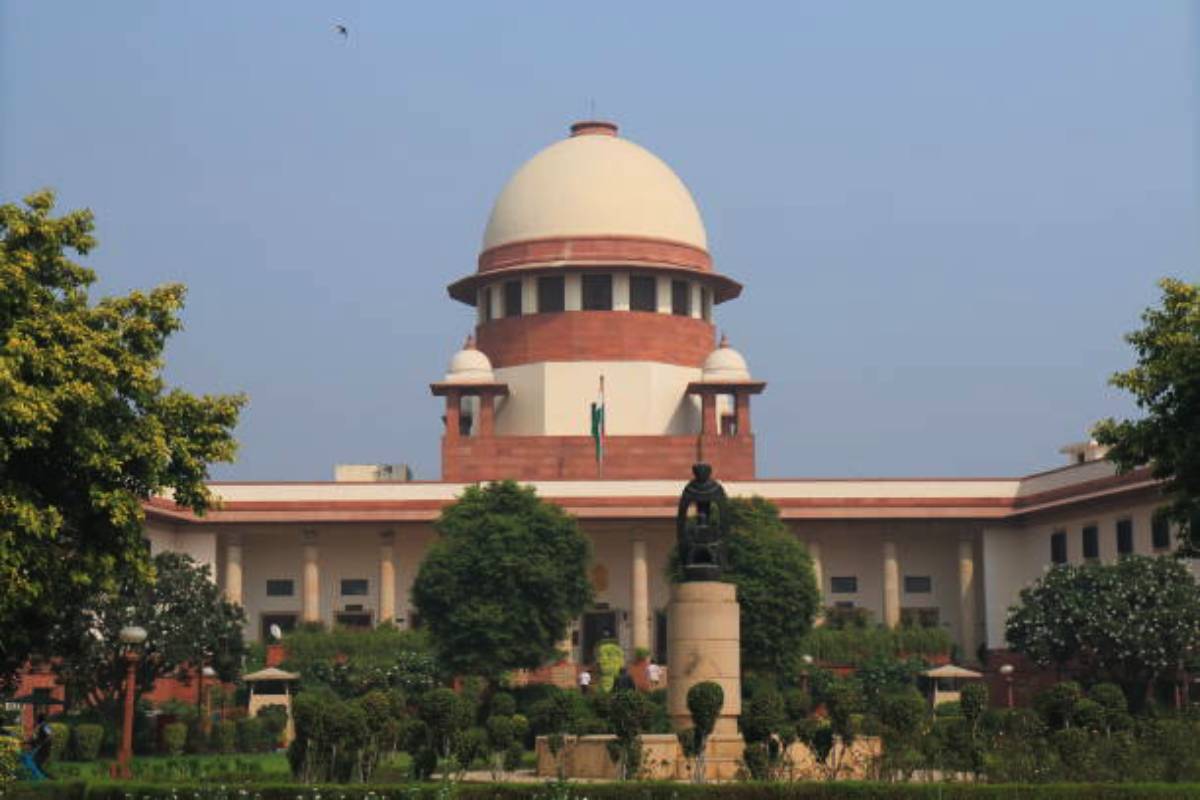India’s Got Latent: SC issues notice on YouTuber Ashish Chanchlani’s plea against FIRs
SC issues notice on YouTuber Ashish Chanchlani’s plea to quash or transfer FIR in India’s Got Latent case; tagged with Ranveer Allahabadia’s petition.
The apex court has now posted the matter for directions on May 9 and said that case will be listed for hearing in July.

File Photo: Supreme Court of India
The Centre and Gujarat governments on Tuesday informed the Supreme Court that they will not seek a review of the top court’s earlier order directing them to place original records for remitting the sentence of 11 convicts in Bilkis Bano case.
The state and central governments also told the apex court that they would not claim privilege over the documents on remission of sentence and agreed to share the documents with the top court for its perusal. A bench of Justices KM Joseph and BV Nagarathna also asked the convicts, who have not filed their response to the pleas, to file their affidavits within two weeks.
As several counsel appearing for the convicts raised objections on not being served the notice on Bano’s plea and sought time, Justice Joseph said, “It is obvious, rather more than obvious, that you all do not want the hearing to be conducted by this bench.”
Bilkis Bano and others had approached the top court challenging the premature release of 11 convicts in the gang-rape case and murder of her family members during the 2002 riots.
The apex court has now posted the matter for directions on May 9 and said that case will be listed for hearing in July.
During last hearing, the Centre and state governments claimed privilege over the files relating to the grant of remission to the convicts and said they are likely to seek a review of the March 27 order whereby original files of the remission were sought.
Besides filing a petition against per-mature release of convicts, Bano had also filed a review petition seeking a review of its earlier order by which it had asked the Gujarat government to consider the plea for the remission of one of the convicts.
The review petition was dismissed.
Some PILs were filed seeking directions to revoke the remission granted to 11 convicts.
The pleas were filed by the National Federation of Indian Women, whose General Secretary is Annie Raja, Member of the Communist Party of India (Marxist) Subhashini Ali, journalist Revati Laul, social activist and professor Roop Rekha Verma and TMC MP Mahua Moitra.
Gujarat government, in its affidavit, had defended remission granted to convicts saying they completed 14 years of sentence in prison and their “behaviour was found to be good”.
The state government had said it has considered the cases of all 11 convicts as per the policy of 1992 and remission was granted on August 10, 2022, and the Central government also approved the release of convicts.
It is pertinent to note that the remission was not granted under the circular governing grant of remission to prisoners as part of the celebration of “Azadi Ka Amrit Mahotsav”, it had said.
“State government considered all the opinions and decided to release 11 prisoners since they have completed 14 years and above in prisons and their behaviour was found to be good,” the affidavit said.
The government had also questioned the locus standi of petitioners who filed the PIL challenging the decision saying they are outsiders to the case.
The pleas said they have challenged the order of competent authority of the government of Gujarat by way of which 11 persons who were accused in a set of heinous offences committed in Gujarat were allowed to walk free on August 15, 2022, pursuant to remission being extended to them.
The remission in this heinous case would be entirely against public interest and would shock the collective public conscience, as also be entirely against the interests of the victim (whose family has publicly made statements worrying for her safety), pleas stated.
The Gujarat government released the 11 convicts, who were sentenced to life imprisonment, on August 15. All the 11 life-term convicts in the case were released as per the remission policy prevalent in Gujarat at the time of their conviction in 2008.
In March 2002 during the post-Godhra riots, Bano was allegedly gang-raped and left to die with 14 members of her family, including her three-year-old daughter. She was five months pregnant when rioters attacked her family in Vadodara.
Advertisement
Advertisement